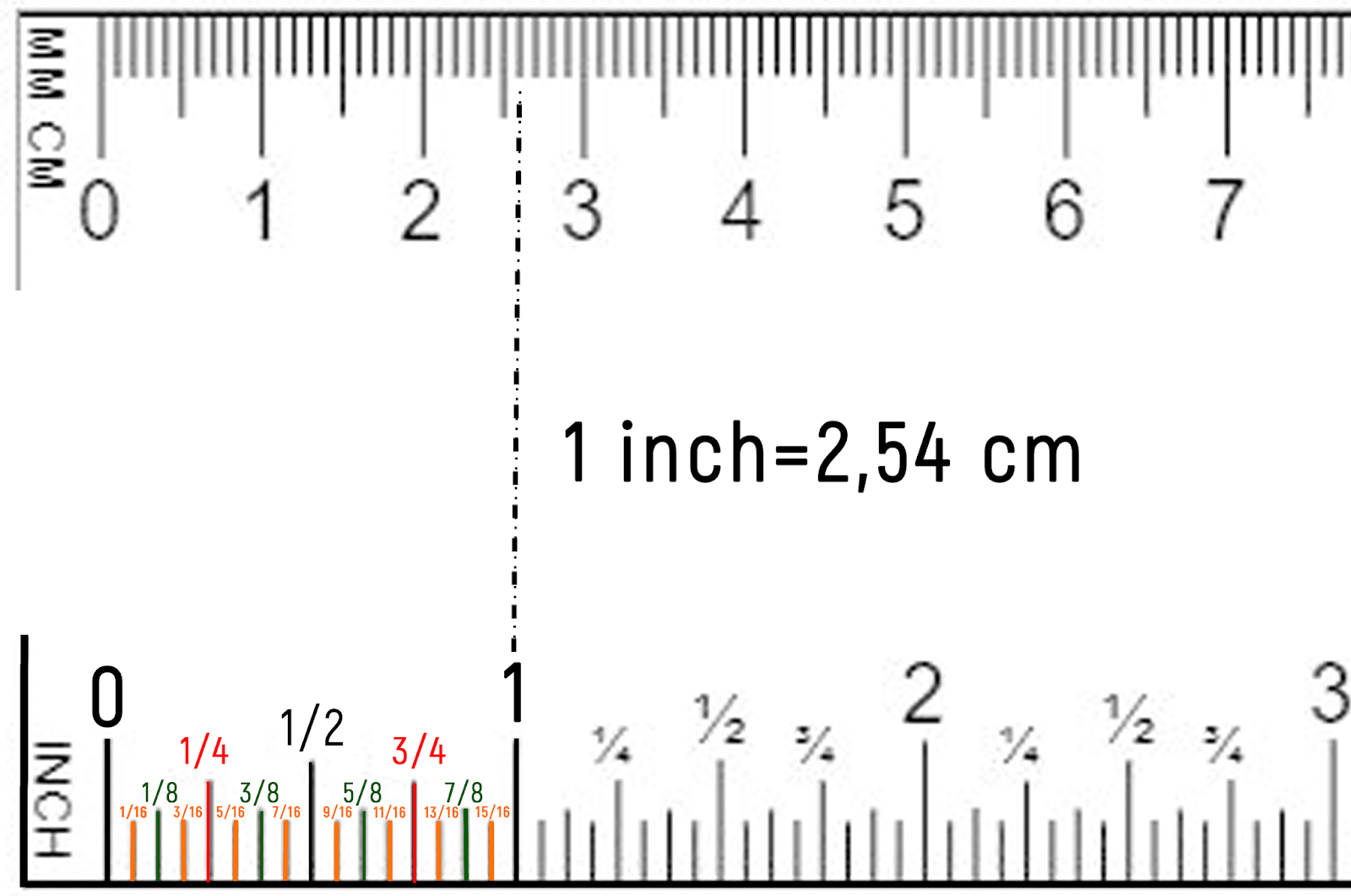Inch to CM Conversion: Your Ultimate Guide
Ever wondered how many centimeters make up an inch? You're not alone. This seemingly simple question underlies countless calculations, from crafting projects to international trade. Understanding this fundamental conversion is essential for anyone working with measurements, whether you're a seasoned engineer or a DIY enthusiast.
The magic number you're looking for is 2.54. One inch is precisely equivalent to 2.54 centimeters. This conversion factor serves as a bridge between the imperial and metric systems, two of the most widely used measurement systems globally. But where does this number come from, and why is it so important?
The inch, a unit rooted in the Anglo-Saxon system, originally referred to the width of a man's thumb. Over time, it became standardized, eventually finding its place within the imperial system. The metric system, with its decimal-based structure, emerged later, offering a more unified approach to measurement. The need to convert between these two systems became increasingly important as global trade and communication expanded.
The relationship between inches and centimeters, specifically the 2.54 cm equivalence, was officially established as part of international agreements on measurement standards. This standardized conversion ensures consistency and accuracy across different disciplines and countries, facilitating seamless communication and collaboration.
Understanding the inch to centimeter conversion is crucial in various fields. In manufacturing, precise measurements are essential for creating components that fit together perfectly. In design and construction, accurate conversions ensure that blueprints translate correctly into real-world dimensions. Even in everyday life, knowing how to convert inches to centimeters can be helpful for tasks like tailoring clothes or following recipes from different parts of the world.
The conversion itself is straightforward: simply multiply the number of inches by 2.54 to get the equivalent value in centimeters. For example, 5 inches is equal to 5 * 2.54 = 12.7 centimeters.
One of the key benefits of understanding this conversion is improved accuracy in measurement. Another advantage is enhanced communication when working with international partners or following instructions using different measurement systems. Finally, it simplifies tasks involving both imperial and metric units, eliminating the need for complex or approximate calculations.
Let's say you have a piece of fabric measured in inches and a pattern using centimeters. By understanding the conversion, you can accurately adjust the pattern to fit the fabric, avoiding potential mistakes and wasted material. Similarly, if you are assembling furniture with instructions provided in centimeters, you can easily use a ruler marked in inches by applying the 2.54 conversion factor.
Advantages and Disadvantages of Using Two Measurement Systems
While the conversion itself is simple, the existence of two dominant measurement systems presents both advantages and disadvantages.
Frequently Asked Questions:
1. What is the exact conversion of 1 inch to cm? 2.54 cm.
2. Why is this conversion important? It bridges the gap between the imperial and metric systems.
3. How do I convert inches to cm? Multiply the inch value by 2.54.
4. How do I convert cm to inches? Divide the cm value by 2.54.
5. Where can I find a quick conversion tool? Many online converters are available.
6. What are some real-world examples of this conversion? Tailoring, construction, manufacturing.
7. What are the challenges of using two different measurement systems? Potential for confusion and errors.
8. Is there a way to simplify working with both systems? Memorizing the 2.54 conversion factor helps.
Tips and Tricks: Use a calculator or online converter for quick conversions. Create a cheat sheet with common conversions for easy reference.
In conclusion, understanding the conversion of 1 inch to 2.54 centimeters is a fundamental skill in today's interconnected world. This seemingly simple conversion bridges the gap between two dominant measurement systems, facilitating accurate communication and collaboration across various fields. From everyday tasks to complex engineering projects, knowing how to convert between inches and centimeters is essential for anyone working with measurements. By embracing this knowledge and utilizing the readily available tools and resources, we can navigate the world of measurement with confidence and precision. Start applying this knowledge today and experience the benefits of seamless conversion between inches and centimeters. It will undoubtedly empower you to tackle measurement challenges effectively and contribute to a more standardized and interconnected world.
Landlord liability shield why home warranties are essential for rental properties
Streamline your supply chain navigating the world of online freight services
Rocking your 50s the ultimate guide to effortless style






